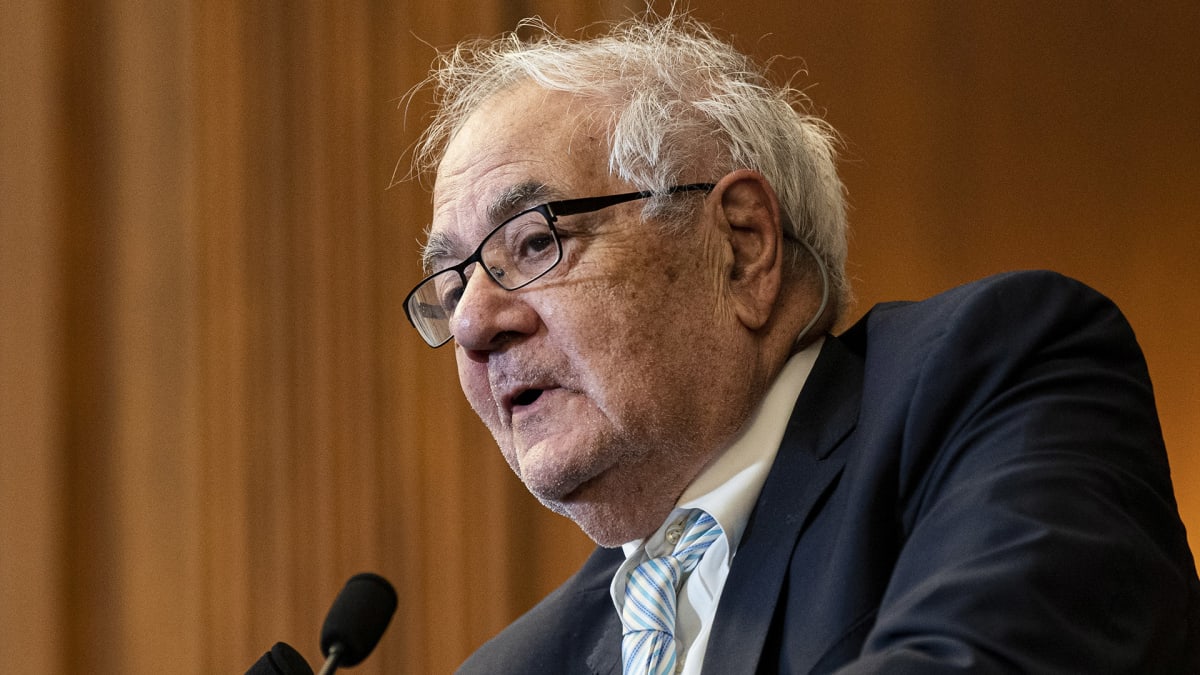
Barney Frank, a co-author of the Dodd-Frank banking-reform act, is a board member of Signature Bank, which regulators closed on March 12.
In the aftermath of the Great Recession in 2008, the Dodd-Frank Act was passed to improve the banking system after several major banks, including Lehman Brothers and Bear Stearns, failed during the subprime mortgage crisis. Bear Stearns was sold to JPMorgan Chase and Lehman Brothers was forced to file for bankruptcy.
Frank, a Massachusetts Democrat who served as chairman of the House Financial Services Committee from 2007 to 2011, became one of the leading co-sponsors of the Dodd-Frank Act in 2010.
In June 2015, he became a board member of Signature Bank in New York
Signature Bank had 40 branches in the U.S,, including New York, California, Connecticut, North Carolina, and Nevada. At Dec. 31, 2022 it had total assets of $110.4 billion and total deposits of $82.6 billion.
Frank said the bank's closure was premature.
“I think that if we’d been allowed to open tomorrow, that we could’ve continued — we have a solid loan book, we’re the biggest lender in New York City under the low-income housing tax credit,” he told Bloomberg on March 12. “I think the bank could’ve been a going concern.”
Trump Rules Rollback Not a Factor: Frank
Regional banks failing even under the supervision of a banking expert could be ammunition for Republicans.
But Frank is standing by the banking regulation reforms he sponsored and said that without the passage of Dodd-Frank the bank failures could be more widespread.
“The vindication of the bill is that nobody is talking about anything like 2008,” he told Bloomberg. “If the bill hadn’t been passed, we’d be seeing a lot more damage these days. We got a lot of the vulnerability out of the system.”
President Donald Trump's rollback of some of the Dodd-Frank rules was not a factor in the collapse of either SVB or Signature Bank, Frank said. The changes that Trump put in place eased regulations and decreased the amount of money that was spent on compliance for midsized banks such as Signature.
“I don’t think that had any effect,” Frank said. “I don’t think there was any laxity on the part of regulators in regulating the banks in that category, from $50 billion to $250 billion.”
Silicon Valley Bank's Closure
Signature Bank was shuttered by regulators on March 12 after the FDIC closed Silicon Valley Bank on March 10.
Regulators sought to reassure depositors throughout the U.S. that their savings would be solvent and accessible.
Federal regulators, including the Federal Reserve, said Sunday evening that all depositors would receive 100% of their funds that were in SVB, even the uninsured amounts. The FDIC insures deposits up to $250,000.
President Joe Biden said on Monday in televised remarks, "Americans can have confidence that the banking system is safe."
Experts debated what percent the FDIC would give to SVB customers in the form of an "advance dividend."
Todd Baker, a senior fellow at the Richman Center for Business, Law and Public Policy at Columbia University in New York and managing principal at Broadmoor Consulting, told TheStreet he had estimated that customers would receive "somewhere around a third of their uninsured balances, based on the likely liquidation price of the securities portfolio and a rough estimate of post-run deposit balances."
The FDIC will sell SVB's assets, which includes investments such as stocks and bonds, quickly, but loans, which need to valued, will be a lengthier process.
During previous bank failures, the FDIC would close banks on Friday with a buyer ready to step in. Customers would often receive "55 to 65 cents on the dollar," Lucilio (Louie) Couto, former president and CEO at American Plus Bank in Arcadia, Calif., who was a senior bank examiner at the FDIC for 16 years, told TheStreet.
SVB's customers could receive "in this case, if they sell the securities and there no further losses, they could get 70 cents on the dollar," he said.







